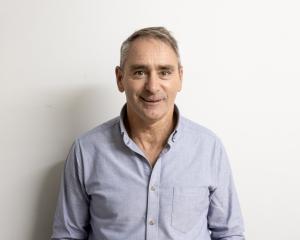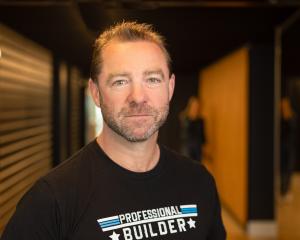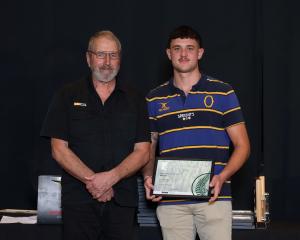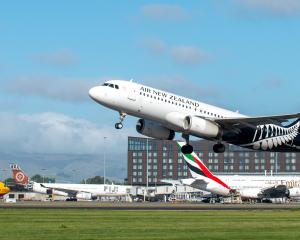
Few families air their dirty laundry quite like the Wellington clan.
Best known as the owners of Preens, the Dunedin family’s connection to the laundry industry dates back 70 years to when chartered accountant Percy Wellington first became involved in the Snow White laundry business.
The family has owned Preens since 1979 and, this year, along with its staff, is celebrating 100 years of the business. And while it was an opportunity to pause and reflect on the past, the family was very much focused on the future, having adopted a "continuous improvement" mindset, managing director Rick Wellington said.
As its slogan now said, the business was more than dry-cleaning, for which it was possibly best known in the wider community, as less volumes had led to a push for diversification, including into other categories, he said.
In 1981, the company expanded into workwear rental as an Apparelmaster franchise licensee, supplying and cleaning overalls, mats and towels.
Preens Linenmaster was launched in 2014 and that division of the company serviced hotels — including the likes of the Distinction Group, Ebb Dunedin and the Chamberson Hotel, motels and other accommodation providers and hospitality clients, throughout the region, with their linen requirements. Latterly, Preens has moved into the likes of rug cleaning and furnishings, and home pick-up for garments in Dunedin.
Percy’s son Mark Wellington, who has been involved since the days when laundry was a very manual task — down to staff having to fold the sheets — continues to be involved as executive chairman, alongside two of his three sons — managing director Rick and Steve, who is commercial director.
Yesterday, Rick Wellington said he was very proud of the centenary milestone and the mindset was "how can we be even better than yesterday?" It had been a very challenging few years — "no question about that" — with Covid-19 throwing up so much uncertainty and costs increasing for a business which was very dependent on energy.
But there was also no shortage of inspiration or ideas "to keep being better than what we do", he said.
He was delighted Preens Apparelmaster and Linenmaster had been named as a finalist in the business sustainability and resilience category in the The Grand Business South Awards, being held in Dunedin next month. Preens won the category in 2014 but had not entered since.
The business had a target of reaching net zero carbon emissions by 2050, a journey which started in 2012 and was gradually progressing, and one the brothers believed was achievable.
Ten years ago, it partnered with independent company Instep to guide its journey. Since that time, it had been measuring its carbon footprint, which included the likes of all fuels used, air travel, paper use and skips taken to landfill.
The company recently invested in a carbon reduction "road map" to help it be less reliant on fossil fuels in the future. It was considering biomass and heat pumps for hot water.
In the last year, Linenmaster processed 1,490,000kg of linen and towelling, at six litres of water per kilogram compared with 15 litres per kg using older washing technology.
As a result of the continuous batch washer, the equivalent of around eight Olympic-sized swimming pools of water each year had been saved, compared with its old washer extractors.
The press, which squeezed out a lot of the moisture from the towels and sheets, put 10,000kg of pressure in each cycle process every three minutes — about the equivalent of 15 Mini cars.
The rental business prolonged the life of textiles, which "went around in a circle", and minimised the impact on natural resources such as water and energy, Steve Wellington said.
RFID chips in those textiles ensured Preens knew where it was in the laundry cycle, how many washes it had had and when it was bought. Linenmaster textiles did not go into the landfill; some were donated through Rotary to Tonga, after the devastating tsunami, some were "ragged" and they were also famously used as student party toga sheets, much to the relief of local halls of residence.
The business, which had about 100 staff, turned their employees into "flexible experts" during Covid-19, meaning they worked across all three divisions, which most really enjoyed, Steve Wellington said.
Rick Wellington said he was excited to see the return of more people to working in offices and more events happening in the city. There was also evidence of fast fashion slowing down and a desire for garments to last, which was being seen through the repair side of Preens.
Preens was a "people business" — in terms of both its staff and customers — and he personally liked that. The business had to keep evolving and it would be its resilience that would get it through the next 100 years and beyond, he said.
There was a diverse workforce at Preens, which led to an International Food Day being held, and a focus on the health and wellbeing of the team.
Supporting local businesses and the community was also important to the family. Preens was proud to support the Otago Community Hospice as a gold sponsor, processing its laundry for free.
With first-hand experience of "how amazing" hospice staff were, Preens was also working with the hospice on other ideas to help raise awareness of the hospice and also to raise additional funds to contribute to its operational costs. It also partnered with Cargill Enterprises to provide work for the business enterprise with a social purpose.
One thing that was constant at Preens was change — "there’s never a dull moment", Steve Wellington said, adding that for him along with his brother it meant having to be a people-person and a businessperson. In their case that meant having to understand everything from technology, engineering and lean philosophies to maintenance and logistics, water waste, soaps and chemicals.
"We’re not just selling lollies ... There’s a lot of moving parts to the whole thing."











